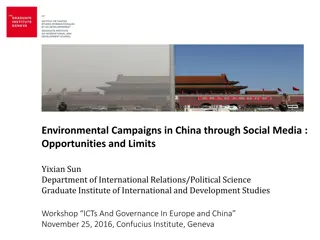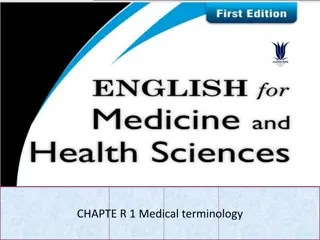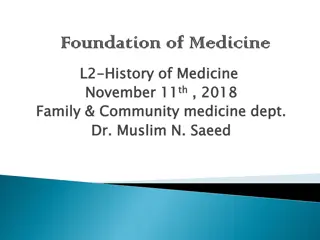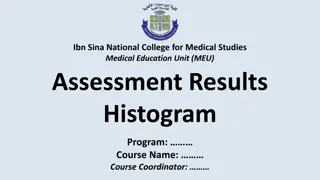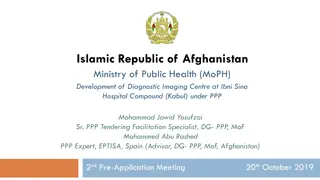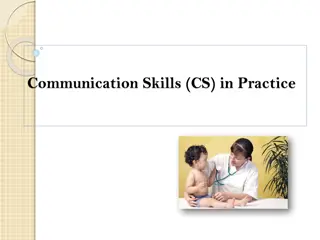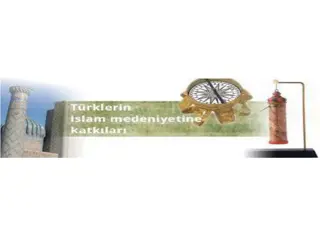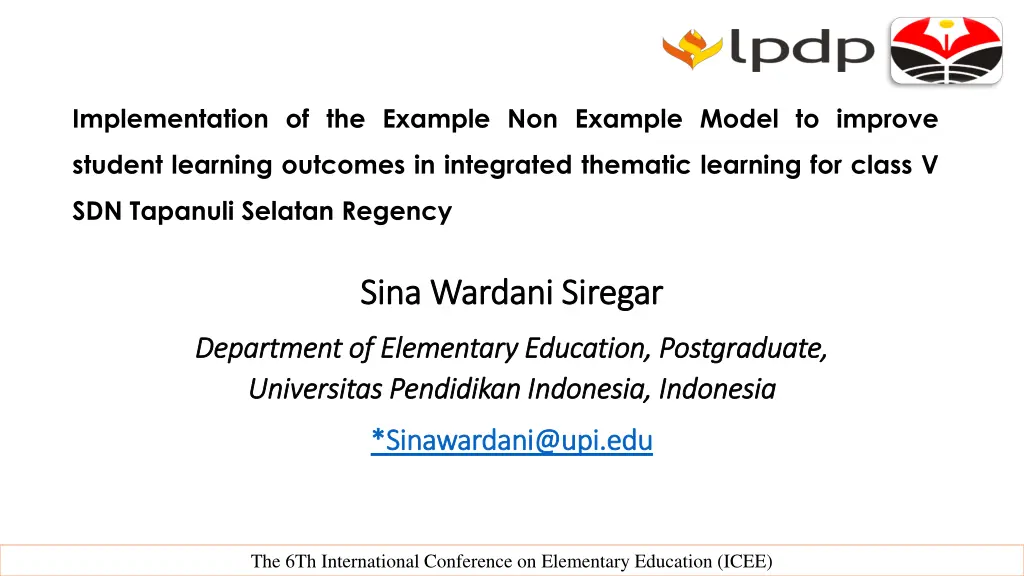
Implementation of Example Non-Example Model for Student Learning Outcomes in Integrated Thematic Learning
Explore the implementation of the Example Non-Example model to enhance student learning outcomes in a class V setting. This research delves into addressing dilemmas such as lack of student activeness, silence, and boredom during the learning process at an elementary school in South Tapanuli Regency, Indonesia.
Download Presentation

Please find below an Image/Link to download the presentation.
The content on the website is provided AS IS for your information and personal use only. It may not be sold, licensed, or shared on other websites without obtaining consent from the author. If you encounter any issues during the download, it is possible that the publisher has removed the file from their server.
You are allowed to download the files provided on this website for personal or commercial use, subject to the condition that they are used lawfully. All files are the property of their respective owners.
The content on the website is provided AS IS for your information and personal use only. It may not be sold, licensed, or shared on other websites without obtaining consent from the author.
E N D
Presentation Transcript
Implementation of the Example Non Example Model to improve student learning outcomes in integrated thematic learning for class V SDN Tapanuli Selatan Regency Sina Sina Wardani Wardani Siregar Siregar Department of Department of Elementary Education Elementary Education, Postgraduate, Universitas Pendidikan Indonesia, Indonesia Universitas Pendidikan Indonesia, Indonesia , Postgraduate, *Sinawardani@upi.edu *Sinawardani@upi.edu The 6Th International Conference on Elementary Education (ICEE)
Acknowledgments Acknowledgments I would like to extend our sincere gratitude to Lembaga Pengelola Dana Pendidikan (LPDP), Ministry of Finance of the Republic of Indonesia, for funding my conference in The 6Th International Conference on Elementary Education (ICEE) The 14th Asian Conference on the Social Sciences (ACSS2023) The 6Th International Conference on Elementary Education (ICEE)
Introduction Introduction based on observations made by researchers at the 101107 Aek Libung State Elementary School, which is in South Tapanuli Regency, the dilemmas found during teaching and learning activities take place are: 1) Lack of activeness of students in the learning process, 2) students tend to be more silent even though the teacher has asked the students several questions, 3) Many students also look less enthusiastic because during the lesson the students are seen lying on the table while listening to the teacher explaining the lesson, 4) the students seem bored and sleepy during the process learning is in progress, this can be seen from students carrying out other activities when the teacher explains lesson material such as scribbling in books and occasionally seen students chatting with their classmates. The 14th Asian Conference on the Social Sciences (ACSS2023) . The 6Th International Conference on Elementary Education (ICEE)
Research Purposes Research Purposes In accordance with the problem formulation above, the general aim of this research is to describe the improvement in student learning outcomes using the Example Non Example model in integrated thematic learning in class V at SDN South Tapanuli Regency. Then the specific aim of the research is to describe plans, implementation of learning, and improvement of student learning outcomes using the Example Non Example model. The 14th Asian Conference on the Social Sciences (ACSS2023) The 6Th International Conference on Elementary Education (ICEE)
Method Method Method Classroom Action Research (PTK) The 14th Asian Conference on the Social Sciences (ACSS2023) The 6Th International Conference on Elementary Education (ICEE)
Research Subjek The subjects in this research were second semester students of class V at SDN 101107 Aek Libung. With a total of 38 students, consisting of 24 male students and 14 female students. Apart from that, the author is a practitioner (teacher) in class V at SDN 101107 Aek Libung and two observers, namely the class V teacher and a friend. the teacher's colleagues. The 6Th International Conference on Elementary Education (ICEE)
Result Cycle 1 In cycle I, meeting 1 on planning or RPP, a percentage of 87.5% was obtained with good qualifications (B), in cycle I, meeting 2, a percentage of 95% was obtained with very good qualifications (AB). This shows an increase from meeting 1 to meeting 2. Furthermore, in the implementation of learning cycle I, meeting 1, the teacher aspect obtained a score percentage of 79.16% with sufficient qualifications (C), and for the student aspect, the score percentage obtained was 81.25% with good qualifications (B). Meanwhile, in cycle I, meeting 2, the teacher aspect obtained a score percentage of 85.41% with good qualifications (B) and in the student aspect the score percentage obtained was 89.58% with good qualifications (B). Student learning results in cycle I meeting 1 showed that students did not understand the material being taught, this can be seen from the average score obtained by students in the knowledge and skills aspect, namely 76.18 with sufficient qualifications (C), while in cycle I meeting 2 obtained an average of 78.50 with sufficient qualifications (C). The score obtained was still not as expected, therefore the researchers continued to the next cycle. The 6Th International Conference on Elementary Education (ICEE)
Result Cycle 2 In cycle II, planning or RPP increased compared to cycle I. This can be seen from the percentage of RPP observation scores in cycle II, namely 97.5% with very good qualifications (AB). Furthermore, the implementation of learning in cycle II in the teacher aspect obtained a score percentage of 95.83% with very good qualifications (AB) and in the student aspect a score percentage obtained 95.83% with very good qualifications (AB). This shows that the implementation of cycle II learning has improved from the previous cycle. Student learning outcomes in cycle II have increased, in the knowledge and skills aspect in cycle II, the average student learning outcome was 87 with good qualifications (B). Thus, from the results obtained in cycle II it has been implemented well and the researcher concludes that improving student learning outcomes in integrated thematic learning using the Example Non Example model has been very successful. The 6Th International Conference on Elementary Education (ICEE)
The increase in student learning outcomes using the Example Non Example model can be seen in the graph below: increasing student learning outcomes 120.00% 100.00% 82 80.00% 80 Cycle 1 Pertemuan 1 60.00% 78 Cycle 1 Meeting 2 increasing student learning outcomes Cycle 2 40.00% 76 74 20.00% 72 0.00% Cycle I Meeting I Cycle II Meeting 2 Cycle II RPP Teacher aspect Student Aspec Grafik 4.2: Increasing Student Learning Outcomesw Grafik 4.1: recapitulation Cycle 1 and Cycle 2
Conclusion Conclusion Based on the research results and the researcher's discussion, it can be concluded that the results of the RPP research in cycle I, meeting 1, were an average of 87.5% with good criteria (B). Furthermore, in cycle I, meeting 2 with an average of 95% with very good (AB) criteria. It increased further in cycle II, namely, 97.5% with very good (AB) criteria. Implementation of learning in cycle I teacher activities was 79.16% (C) increasing in cycle II to 95.83% (AB). Implementation of learning in cycle I student activities was 81.25% (B) increasing in cycle II to 95.83% (AB). Student learning outcomes in cycle I obtained an average of 76.18 (C) and increasingly increased in cycle II, namely 87 (B). Thus, the Example Non Example model can improve student learning outcomes in integrated thematic learning in class V at SDN Kabupaten Tapanuli Selatan The 14th Asian Conference on the Social Sciences (ACSS2023) The 6Th International Conference on Elementary Education (ICEE)
All The Best for the best in you!! The 14th Asian Conference on the Social Sciences (ACSS2023) The 6Th International Conference on Elementary Education (ICEE)

